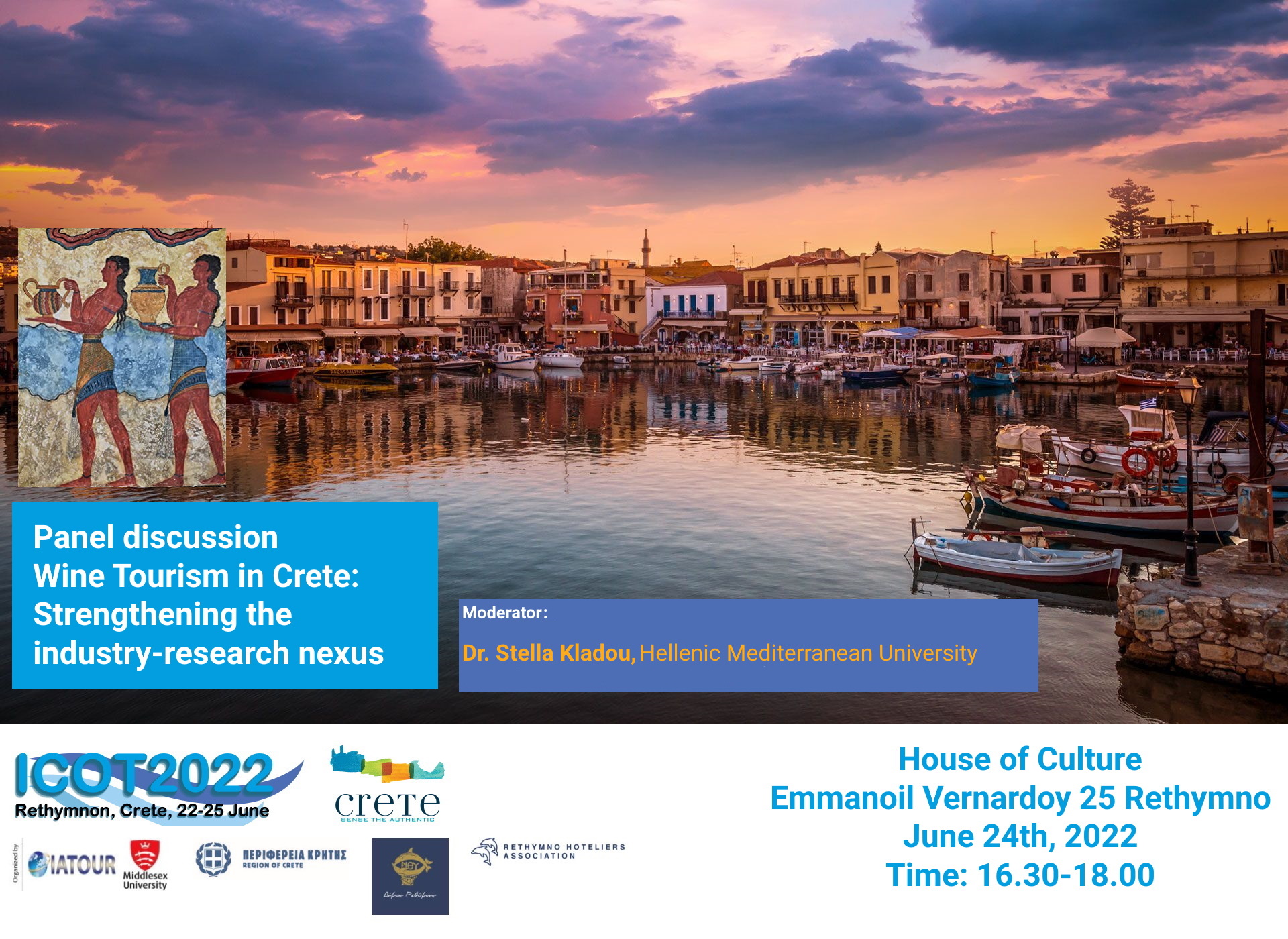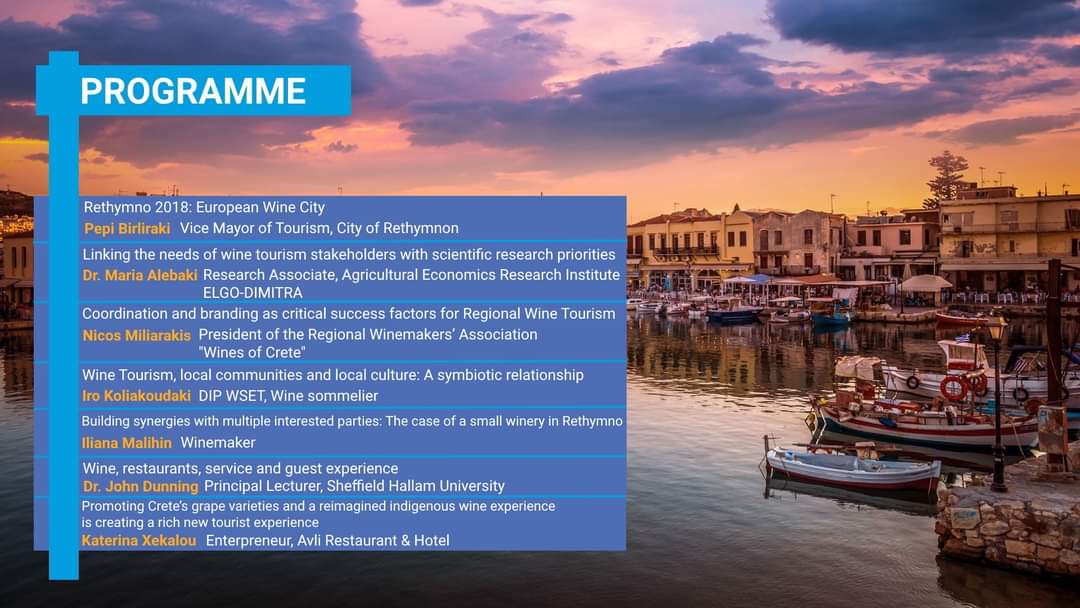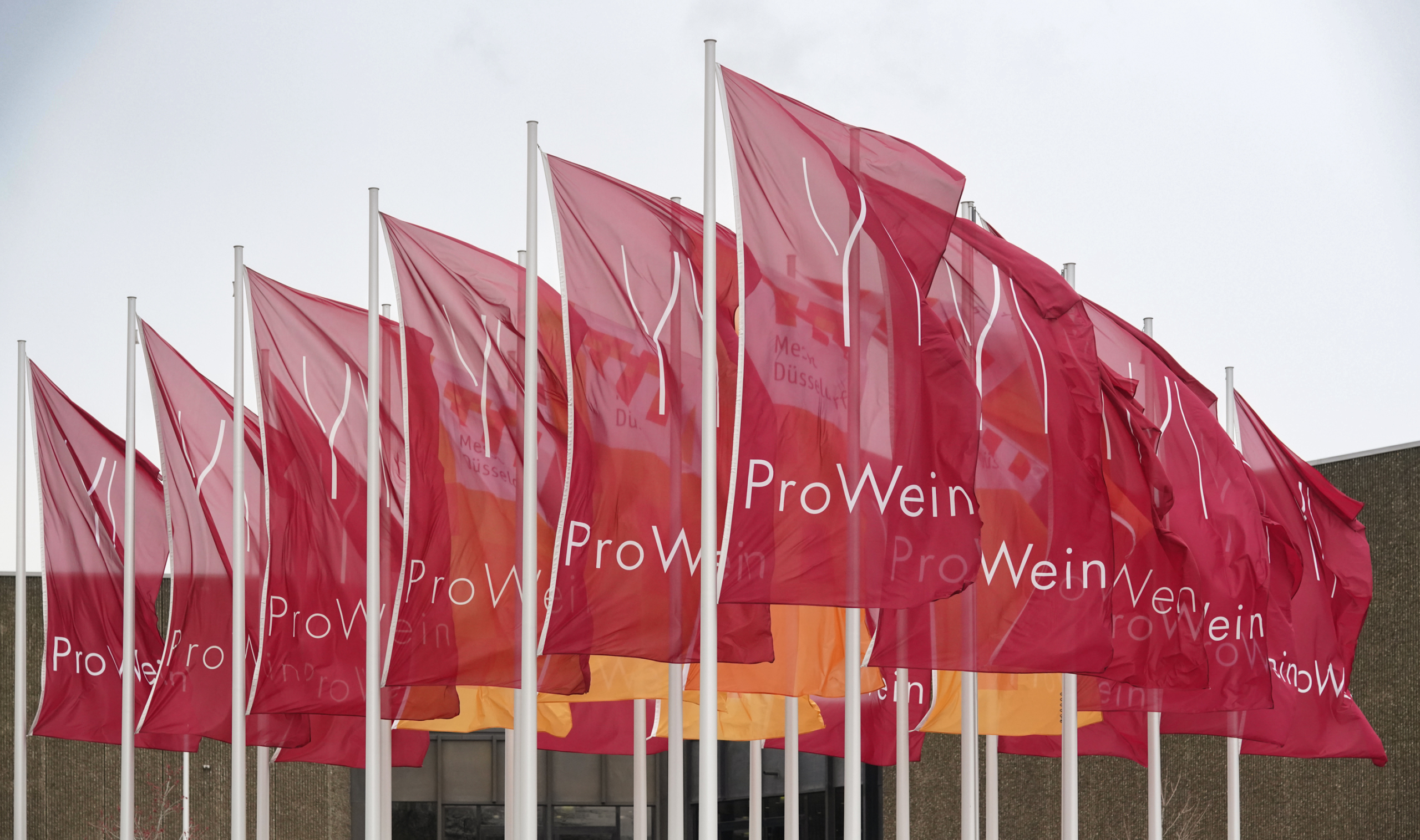Wines of Crete at the panel Wine Tourism in Crete: Strengthening the industry-research nexus


A particularly interesting event was organized by Dr. Stella Kladou, Assistant Professor at the Department of Business Administration & Tourism, Hellenic Mediterranean University and Dr. Maria Alebaki, Associate Researcher at the Agricultural Economics Research Institute, ELGO-DIMITRA, in the framework of the ICOT2022 International Tourism Conference in Rethymno. On Friday 24.06.20222, representatives of both academia and the wine tourism sector presented their perspectives at a panel discussion entitled “Wine Tourism in Crete: Strengthening the industry-research nexus”. The panel, moderated by Dr. Stella Kladou, aimed to bring together academics and practitioners working toward the development of wine tourism to exchange and share their ideas.

In particular, the diverse group of participants included:
- Pepi Birliraki, Vice Mayor of Tourism, City of Rethymnon
- Maria Alebaki, Associate Researcher at the Agricultural Economics Research Institute, ELGO-DIMITRA
- Nicos Miliarakis, President of the Regional Winemakers’ Association “Wines of Crete”
- Iro koliakoudaki, DIP WSET, Wine sommelier
- Iliana Malihin, Winemaker
- John Dunning, Principal Lecturer, Sheffield Hallam University
- Katerina Xekalou, Entrepreneur, Avli Restaurant and Hotel.
Main points emerging from the panel discussion and its aftermath are summarized as follows:
- At the macro- level, immediate and continuous brainstorming and inclusive roundtable discussions are necessary until a long-term strategic plan on the development of wine (or agro-) tourism is in place and running. This plan needs to include action plans, long/middle/short term objectives, measurable outcomes for each, specific deadlines and tasks for each involved partner. Partners extend to a wide range of stakeholders (i.e., from policy makers to directly/ indirectly related business operators, visitors and locals to auxiliary service providers and authorities), thus detailed mapping inspired by extant knowledge and international practices will help foreseeing all parties whose needs, priorities and involvement have to be taken into consideration.
- At the micro- level, some of the needs detected refer to: addressing multi-tasking/ workload, challenges of work-life balance and (under)payment, building trust between involved parties, profiling of the rural/food/wine tourist, as well as capacity building, communication and synergies between employees; producers; farmers; entrepreneurs; customers; intermediaries and the “Wines of Crete” network.
Scholarly research and academia will continue to contribute any way possible, until decision makers and the industry set the scene for strategically addressing the above.


